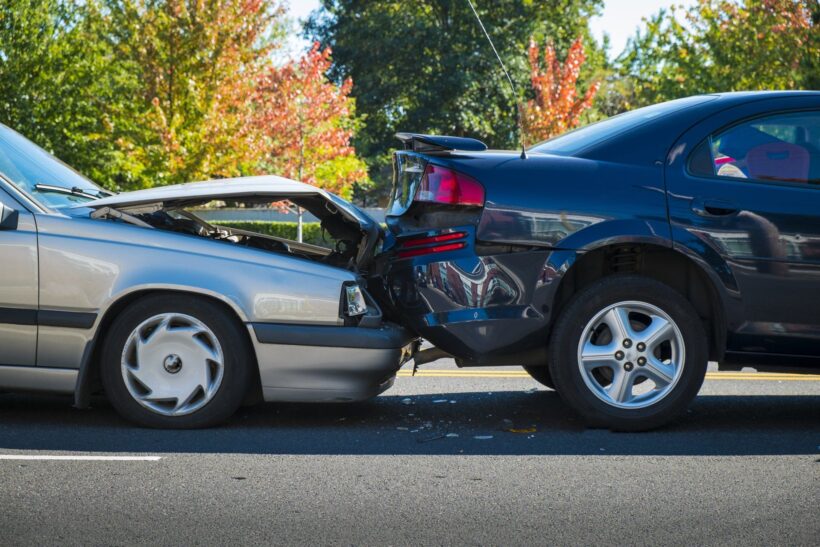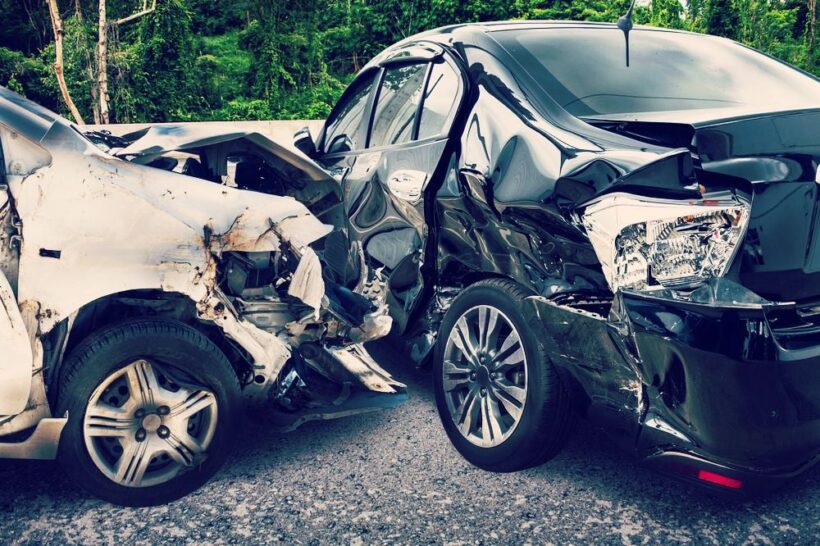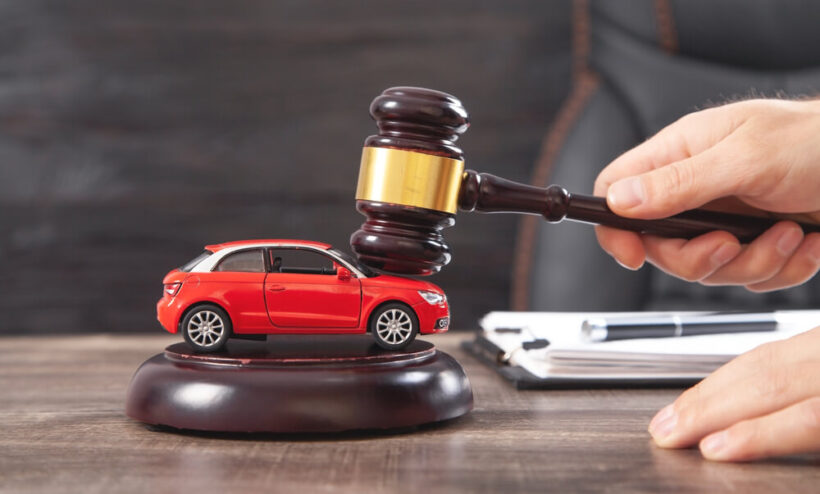Driving a company car is a common perk for many employees, offering convenience and sometimes even a sense of prestige. However, it also comes with its own set of responsibilities, especially when it comes to motor vehicle accidents. In this comprehensive guide, we will explore what you should do if you find yourself in an accident while driving a company vehicle, the potential legal considerations, and the importance of seeking legal counsel from a car accident lawyer.
The Responsibility of Driving a Company Car

Company cars are often provided to employees for work-related purposes, such as client meetings, deliveries, or business trips. While the company may cover the cost of the vehicle and its maintenance, it’s crucial to remember that when you’re behind the wheel of a company car, you represent your employer. This means that your actions on the road can reflect on the company itself.
When you’re entrusted with a company car, you become an ambassador for your organization. Safe and responsible driving not only protects you but also upholds the reputation of your employer. It’s essential to adhere to traffic laws, avoid distractions, and prioritize safety at all times.
Immediate Steps After an Accident
In the unfortunate event of a motor vehicle accident while driving a company car, it’s essential to follow these immediate steps:
- Ensure Safety: First and foremost, check for injuries and make sure everyone involved is safe. If necessary, call 911 for medical assistance. Safety should always be the top priority.
- Exchange Information: Exchange contact and insurance information with the other parties involved in the accident. Gather the names, phone numbers, and addresses of all drivers and passengers. Additionally, collect the license plate numbers and insurance details of the vehicles involved.
- Document the Scene: Take pictures of the accident scene, including vehicle damage, road conditions, traffic signs, and any relevant factors. This documentation can be valuable in insurance claims and legal proceedings.
- Notify Your Employer: Contact your employer as soon as possible to report the accident. They will likely have specific protocols to follow, which may include contacting the company’s insurance provider.
- Contact the Police: Depending on the severity of the accident and local regulations, you may need to report the accident to the police. A police report can be essential when filing an insurance claim.
Legal Considerations After an Accident

Automobile accidents involving company cars can have legal implications, and it’s crucial to be aware of your rights and responsibilities:
- Insurance Coverage: Typically, company cars are insured by the employer’s commercial auto insurance policy. However, coverage details can vary. Consult with your employer or the HR department to understand the insurance coverage provided and any deductibles or limitations.
- Potential Liability: In some cases, you may be personally liable for an accident, especially if you were engaged in reckless or illegal behavior at the time of the crash. Seeking legal advice is crucial to understand your liability.
The Impact on Employee-Employer Relations
Motor vehicle accidents involving company cars can have implications beyond the immediate aftermath of the collision. They can affect the relationship between employees and their employers. Here are some aspects to consider:
- Employer Concerns: When an employee is involved in an accident while driving a company vehicle, employers may have concerns about safety, liability, and potential damage to the company’s reputation. It’s essential for employees to understand that accidents can have consequences not only for themselves but also for their workplace.
- Communication: Open and transparent communication is crucial in such situations. Employees should promptly report accidents to their employers, providing all necessary details. Employers, in turn, should have established protocols for handling such incidents, including supporting employees in the process.
- Training and Education: Employers can play a proactive role in accident prevention by providing training and resources to their employees. This may include defensive driving courses, guidelines on safe driving practices, and regular vehicle maintenance.
- Support and Assistance: Employers should offer support and assistance to employees who have been involved in accidents. This includes helping them navigate insurance claims, providing access to legal counsel if needed, and ensuring that necessary medical care is obtained.
- Impact on Employment: In most cases, a single accident is unlikely to result in termination or significant employment consequences. However, if an employee’s actions were grossly negligent or illegal, it could lead to more severe employment repercussions. It’s essential for both parties to be aware of the potential employment implications and to address them professionally.
The Role of a Car Accident Lawyer
If you’ve been involved in a motor vehicle accident while driving a company car, it’s advisable to consult with a car accident lawyer. Here’s why:
- Legal Expertise: Car accident lawyers specialize in personal injury and insurance claims. They can assess the circumstances of your accident, determine liability, and help you understand your legal rights and options.
- Navigating Insurance Claims: Your lawyer can assist you in dealing with the insurance companies involved, ensuring that you receive fair compensation for medical expenses, vehicle repairs, and other damages.
- Protection of Your Rights: In complex cases, a lawyer can protect your rights and interests, especially if the accident involves disputes over liability or if you face potential legal consequences.
Statistics on Accidents Involving Company Cars

While automobile accidents can happen to anyone, it’s worth noting that company car drivers are not immune to such incidents. According to data from the National Highway Traffic Safety Administration (NHTSA), there were approximately 6.7 million police-reported automotive accidents in the United States in 2020. While not all of these involve company cars, it highlights the prevalence of accidents on the road.
Motor vehicle accidents can occur for various reasons, including distracted driving, speeding, impaired driving, adverse weather conditions, and mechanical failures. It’s essential for drivers of company vehicles to exercise caution and follow safety guidelines to reduce the risk of accidents.
Conclusion
Driving a company car comes with a unique set of responsibilities, especially when it comes to accidents. Your immediate actions after an accident are crucial, including ensuring safety, exchanging information, and notifying your employer. Legal considerations, such as insurance coverage and potential liability, should also be addressed.
In the aftermath of a car accident involving a company vehicle, seeking the guidance of a car accident lawyer is a prudent step. They can provide the legal expertise needed to navigate insurance claims, protect your rights, and ensure that you receive fair compensation. Remember that your safety and well-being are of paramount importance in any accident situation, and seeking legal counsel can help you through the challenging aftermath of such an event.
As responsible drivers, individuals who operate company cars play a vital role in maintaining road safety and upholding their organization’s reputation. By understanding the steps to take after a car accident and being aware of the legal aspects involved, employees can navigate these challenging situations with confidence and ensure that their rights are protected.
In similar situations, especially when involved in rideshare driving, options like renting a car specifically for this purpose can offer additional benefits. Companies like Buggy, known for providing the Best Rideshare Rental services, cater to drivers who don’t own a car but wish to drive for mobility apps.


